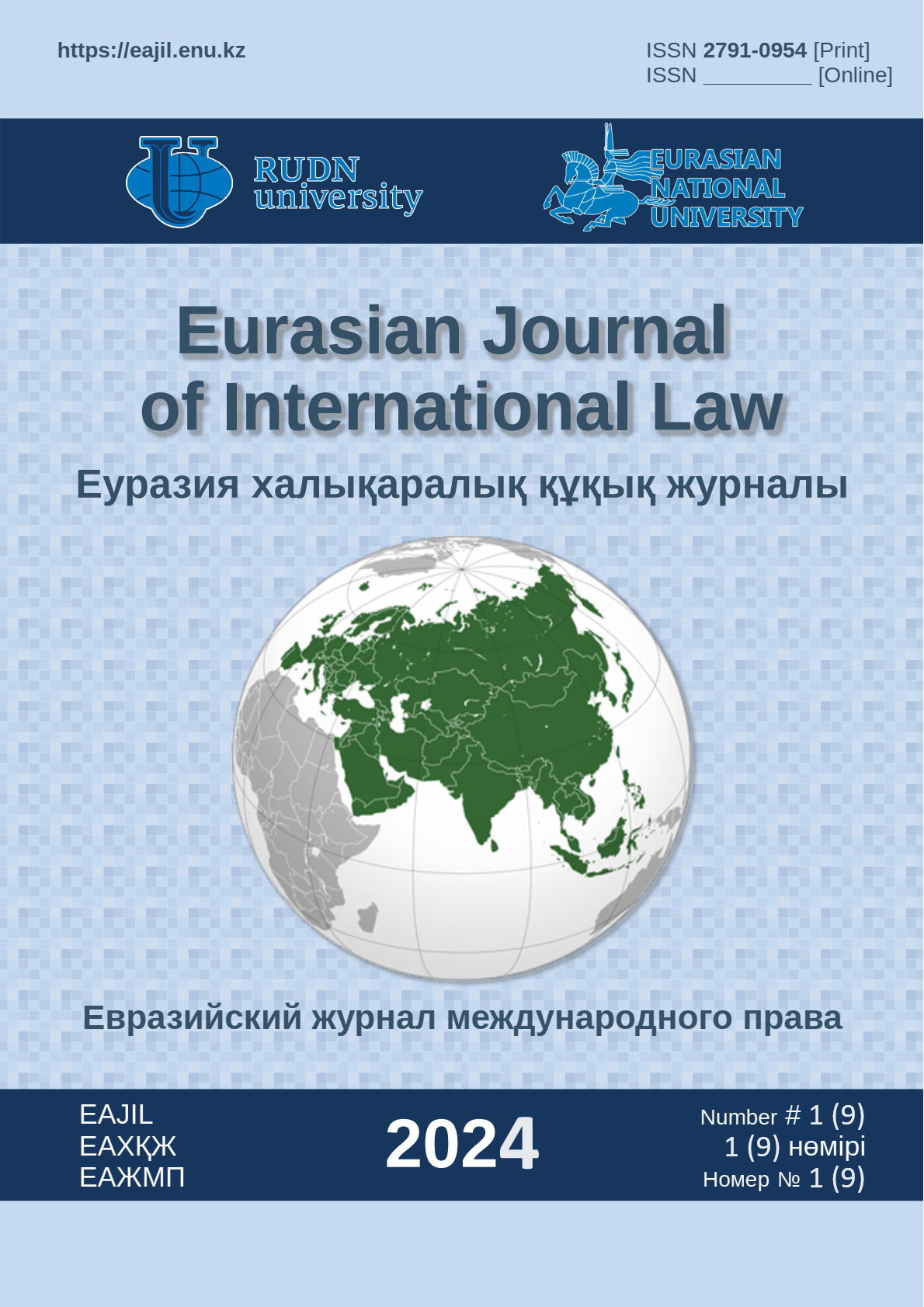Мемлекеттердің қазіргі заманғы қауіпсіздік жүйелеріне жаңа сын-қатерлер мен қауіптер контекстінде трансұлттық ұйымдасқан қылмысқа қарсы іс-қимыл (Беларусь Республикасы мен Ресей мысалында)
https://www.doi.org/10.32523/2791-0954-2024-8-1-33-50
Қаралымдар: 20 / PDF жүктеулері: 4
Кілт сөздер:
transnational organized crime, unilateral sanctions, collective (regional) security, national security, challenges and threats, international law, international cooperation on special issuesАңдатпа
Мемлекеттердің қауіпсіздік жүйелеріне төнетін негізгі қауіптердің ішінде трансұлттық ұйымдасқан қылмыс маңызды орын алады. Бұған қазіргі заманғы ақпараттық-коммуникациялық технологиялардың (киберқылмыстар, «Даркнет») құқыққа қайшы мүмкіндіктерін дамыту, сыбайлас жемқорлық қылмыстары және қылмыстық кірістерді заңдастыруға (жылыстатуға) байланысты қылмыстар, 2.0– «прокси-соғыс» & «бизнес-жоба» және т.б. форматында қарулы қақтығыстарды жүргізудің жаңа әдістері ықпал етеді. Мемлекетаралық қатынастарда «қосарланған» стандарттарды қолданудың қазіргі заманғы тәжірибесі бірқатар батыс елдері мен олардың одақтастарының «демократиялық емес» деп айқындайтын елдерге қатысты шектеу шараларын (біржақты санкциялар) заңсыз шығаруға ықпал етті.
Санкцияларға ұшыраған және оларды азайтуға немесе оларға қарсы тұруға бағытталған мемлекеттердің күш-жігерін жосықсыз субъектілер (акторлер), халықаралық құқық бұзушылықтар (трансұлттық қылмыстар) ретінде жиі түсіндіреді. НАТО-ға мүше мемлекеттер негізгілер болатын аталған субъектілердің іс-әрекеттері халықаралық құқықтың қолданыстағы қағидалары мен нормаларына, оның ішінде БҰҰ деңгейінде қолдау көрсетілетін даму құқығына қайшы келеді.
Бірнеше рет және негізсіз санкциялық шектеулерге ұшыраған Беларусь Республикасы ұлттық қауіпсіздіктің жаңартылған тұжырымдамасы жобасында оларды ұлттық қауіпсіздікке төнетін қатерлер ретінде арнайы атап өтеді.
Аймақтық қауіпсіздік тетіктері, ең алдымен, Беларусь Республикасы мүше болатын ТМД, ҰҚШҰ және ШЫҰ басқа (Батыс) аймақтық ұйымдардың (НАТО, ЕО) өзге мемлекеттердің (акторлердің) іс-әрекеттерін трансұлттық қылмыстар ретінде айқындау үшін өз критерийлерін таңуы әрекеттерін дисквалификациялайды. Бұл ретте олар Интерпол, ФАТФ, ГРЕКО және т.б. сияқты әмбебап ұйымдардың стандарттары мен рәсімдерін мақсатты түрде елемей немесе саналы түрде бұзып отыр.


